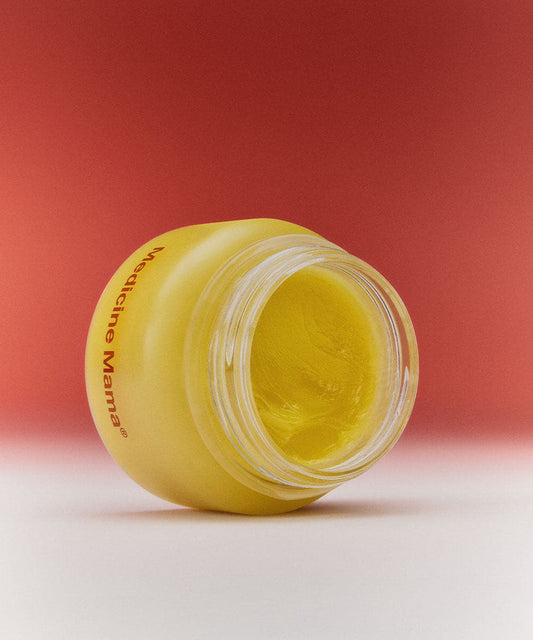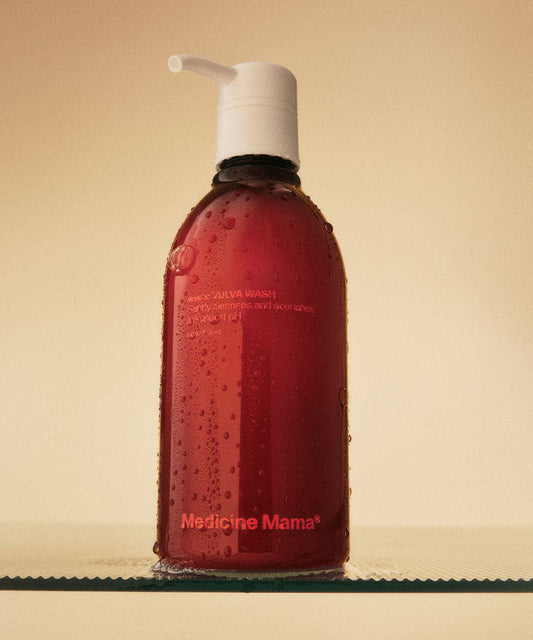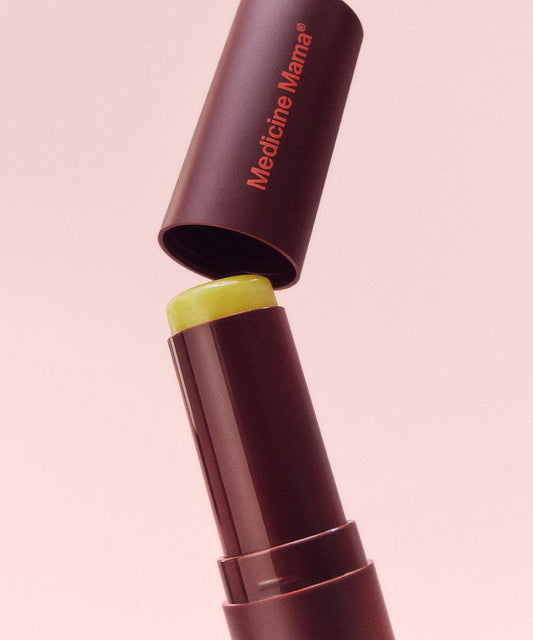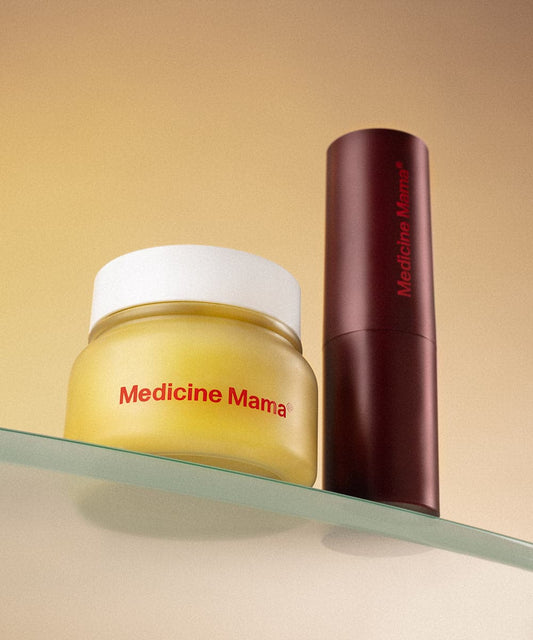Reviewed by | Dr. Clare Bertucio MD
As many of us know, it’s easy for information about women’s healthcare to slip through the cracks. And if you don’t know what to ask or what to look for when you have concerns, it becomes even harder to get advice on how to handle things.
That’s why we're deeply committed to illuminating the lesser-discussed corners of women's health, particularly those conditions that might feel too personal or stigmatized to talk about openly.
Lichen sclerosus, a chronic and often uncomfortable skin condition that primarily affects the genital and vulvar areas, is one such condition that can affect both men and women, but few people have ever even heard of it.
Let’s talk in-depth about lichen sclerosus to demystify its causes, explore its symptoms, and empower you with knowledge and solutions for managing its flare-ups.
What Is Lichen Sclerosus?
Lichen sclerosus is a condition that affects the skin of your genital area and can lead to soreness, itching, and other frustrating symptoms. On the whole, this skin disorder is characterized by intense inflammation, leading to the appearance of white, patchy skin that can become thin, wrinkled, and prone to tearing.
Because it’s located primarily in the genital and vulvar regions, it can evoke a sense of isolation and embarrassment due to its sensitive nature, and that means it can be hard to talk about. However, it’s important to remember that despite its location, lichen sclerosus is an autoimmune disease like any other.
There’s no reason to feel embarrassed or ashamed, and the more you internalize that reality, the easier it will be to talk about it and explore treatment options.
Like other autoimmune conditions, lichen sclerosus causes the immune system to attack healthy skin cells, resulting in the characteristic symptoms. The discomfort, both physical and emotional, comes from symptoms like itchiness, pain during intercourse, and visual changes to your vulva and surrounding skin.
What Causes It, and Who’s at Risk?
Lichen sclerosus most often affects postmenopausal women, largely due to changes in estrogen levels. Yet, it's not exclusive to them — men and kids can find themselves dealing with it, too, especially around areas like the foreskin.
With its roots in autoimmune responses, anyone with an autoimmune condition might find themselves more prone to lichen sclerosus. This means the body’s defense system gets a bit confused and starts attacking healthy skin cells, leading to the telltale signs: inflammation, white patches, and discomfort in the genital area. And if there's a history of autoimmune diseases like vitiligo or scleroderma in your family, the chances might tick up a bit more.
Environmental factors, like certain detergents or coming into contact with irritants, can also turn up the heat on symptoms, pointing to a mix of genetics and lifestyle playing a role. Knowing this helps in getting ahead with early detection and support, highlighting the importance of keeping an eye out for symptoms and understanding who's most at risk.
This knowledge empowers more informed discussions and routine checks, particularly for those in higher-risk groups, navigating through lichen sclerosus with more awareness and less guesswork.
Can You Get Rid of Lichen Sclerosus?
We know it might not be what you want to hear, but if you’ve been diagnosed, it’s more about living with and managing lichen sclerosus than curing it. Once you’re affected, it’s possible that your symptoms will improve over time with treatment, but it’s not likely to ever go away completely.
But this skin condition, though chronic, doesn't have to dictate the quality of your life! There are many things you can do to help improve symptoms and ensure that it doesn’t impact how you feel about sexual intercourse in the future.
But before we get to that, let’s talk about some common triggers for flare-ups.
What Triggers Lichen Sclerosus Flare-Ups?
Lichen sclerosus flare-ups can be sparked by a variety of factors, making management a bit of a balancing act. For many, hormonal changes, particularly around menopause, can play a significant role. The thinning and sensitivity of the vulvar skin during this time can heighten the risk of irritation and inflammation.
Autoimmune conditions, which affect the body's immune response, can also lead to more frequent or severe episodes. Physical irritants are another common trigger; tight clothing, harsh soaps, and even certain detergents can aggravate the sensitive genital area, leading to discomfort.
If you’re finding flare-ups to be more common than not, it’s worth scheduling a follow-up with your doctor to ensure that there’s nothing else at play. This is also true if you can’t pinpoint the cause of lichen sclerosus flare-ups, as there’s no one better equipped than your doctor to help you zero in on what in your day-to-day you might need to address to find relief.
While treatment options (more on that in another section) can help manage your condition, taking steps to avoid flare-ups is the other half of the battle.
What Can You Do About It?
Managing lichen sclerosus is a journey of care, education, and self-compassion. This journey begins with the vital step of diagnosis and continues with a tailored approach to treatment and daily management.
First, Speak To Your Doctor
If you have concerns that are starting to sound like lichen sclerosus, don’t hesitate to speak to your doctor. The longer you put off getting treatment, the more difficult it can be to manage in the long run.
Even if you feel uncomfortable, it’s important to speak to a professional first. Your doctor or gynecologist will be skilled at dealing with lichen sclerosus, understanding its root causes, preventing serious complications, and ensuring your treatment plan evolves with your needs. This could include prescriptions for medications, often a corticosteroid or steroid ointment.
If you’re a man affected by lichen sclerosus, circumcision may be an option for you. Removing the foreskin can, of course, be a fraught conversation for a variety of reasons, both physical and emotional. Still, it can potentially fix the symptoms of lichen sclerosus and provide long-term relief.
Consider Some Lifestyle Changes
You can make some simple changes in your habits and routines to help improve flare-ups more quickly and prevent hard skin or lesions from turning into painful blisters. For one, sticking to loose-fitting, breezy clothing can help.
Likewise, minimizing exposure to irritants like harsh detergents and adopting a balanced diet rich in anti-inflammatory foods can support your skin overall and help your body get to work on fighting back that flare-up. In a similar vein, simple things that promote overall well-being can be beneficial, too.
These things include regular exercise, stress management techniques, and adequate hydration. Though basic, steps like these can play a crucial role in managing autoimmune conditions and their skin manifestations, helping to alleviate soreness and prevent fissures in the affected areas.
Up Your Skincare Routine
If you’re following your dermatologist’s guidance on caring for the sensitive skin of your face, it’s just as important to extend that same gentle care to your vulva and other intimate areas. For individuals managing conditions like lichen sclerosus, incorporating a high-quality, fragrance-free vaginal moisturizer into your routine can provide essential support for the delicate vulvar skin.
These moisturizers are often formulated with soothing, non-irritating ingredients that help combat dryness, calm inflammation, and ease the discomfort associated with fissures, lesions, or general sensitivity. By forming a protective barrier, they can shield the skin from common irritants such as detergents, synthetic fabrics, and environmental stressors.
Regular use of a gentle, non-medicated emollient can help maintain the skin’s moisture balance, support the integrity of the vulvar tissue, and offer a sense of relief during inflammatory flare-ups.
Your vulva deserves a skincare routine, and choosing products that are free from fragrances, dyes, and harsh preservatives can minimize the risk of further irritation and support ongoing skin health.
Empowerment Through Understanding
Lichen sclerosus is a complex skin condition that throws a spotlight on the importance of understanding our bodies, especially the vulvar and genital areas. Whether it's navigating the journey through menopause, considering the implications of autoimmune disorders, or simply keeping an eye out for the first signs of white patches or soreness, knowledge is key.
With a range of treatment options, from topical steroids to emollient creams and the guidance of dermatology experts, managing this condition becomes a path of empowerment rather than uncertainty. Whether dealing with the occasional discomfort or more persistent symptoms, reaching out for support and exploring all available treatment options can make all the difference in living well with lichen sclerosus.
Disclaimer: The information provided on this blog is for general informational and educational purposes only. All content, including text, images, graphics, and other material, is not intended to be a substitute for professional medical advice, diagnosis, or treatment.
Always seek the guidance of your physician or other qualified health professional with any questions you may have regarding a medical condition, treatment, or wellness program. Never disregard the advice of a medical professional or delay in seeking it because of something you have read on this website.
Sources:
Lichen Sclerosus | National Library of Medicine
Lichen Sclerosus—Presentation, Diagnosis and Management | National Library of Medicine
Lichen Sclerosus | Yale Medicine
Autoimmune Responses Are Directed Against Self Antigens | National Library of Medicine



